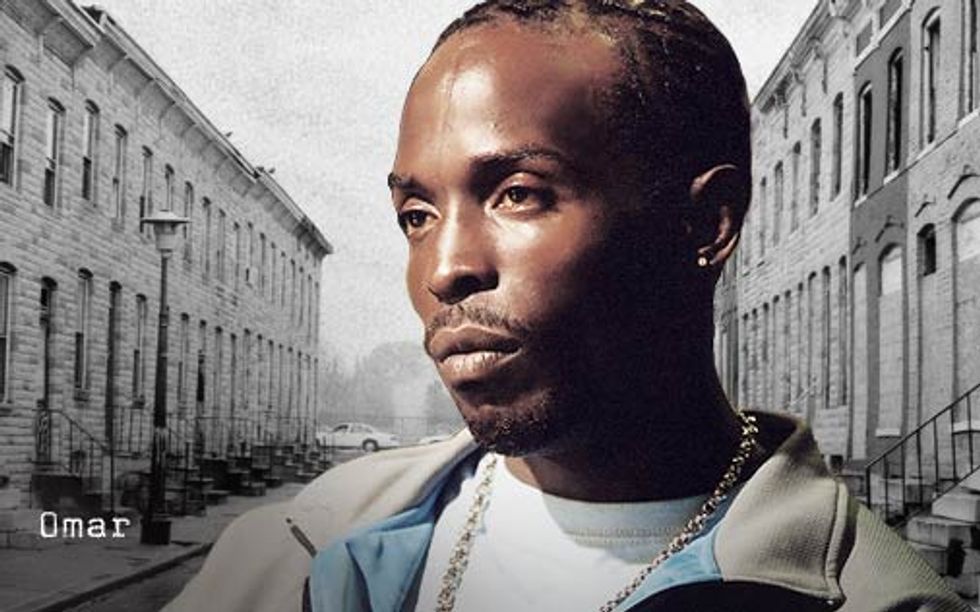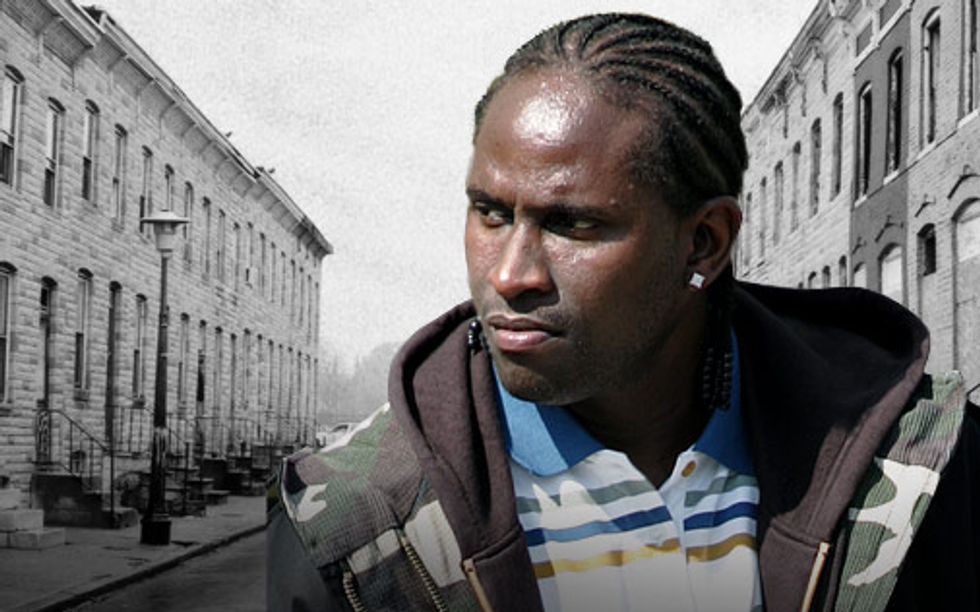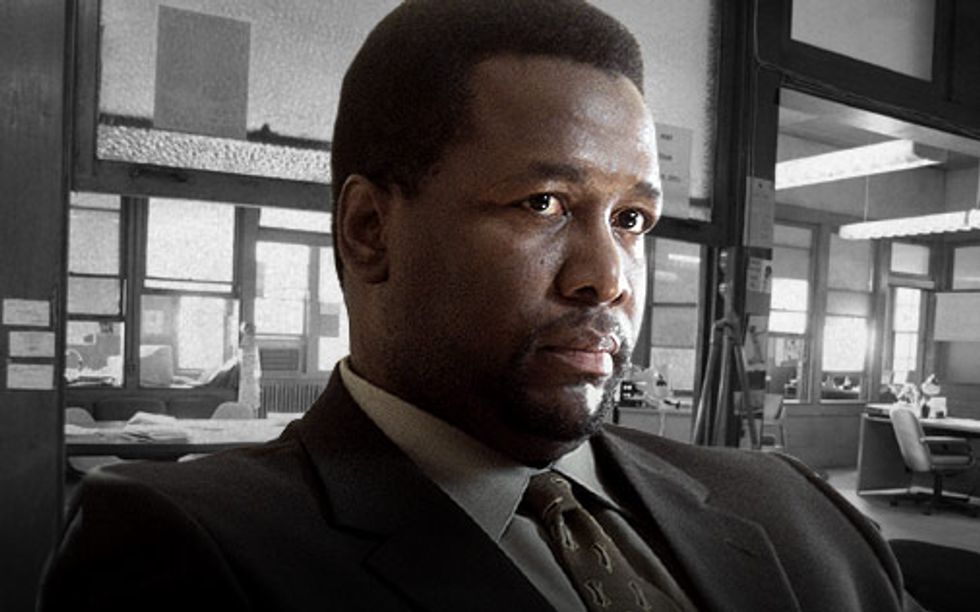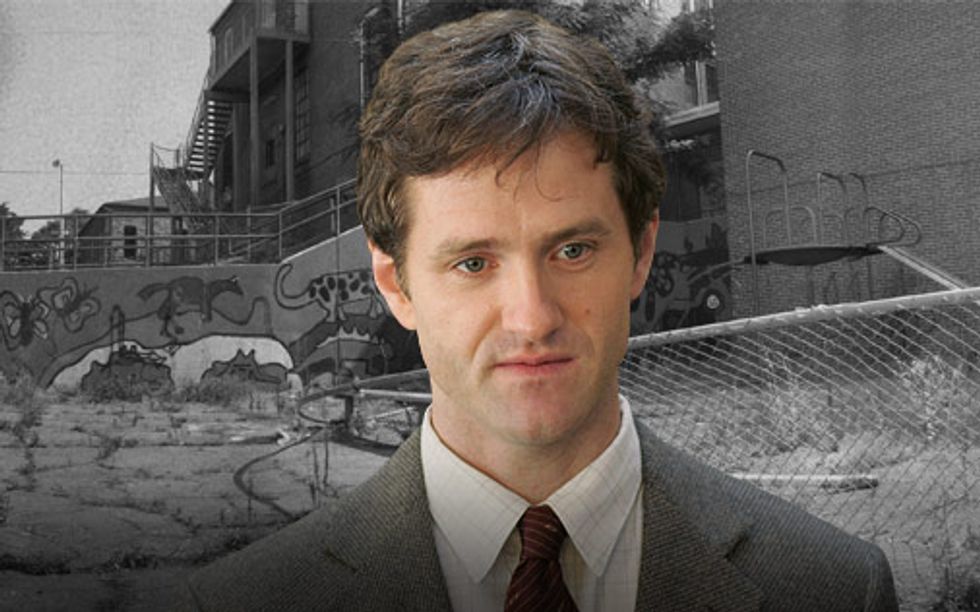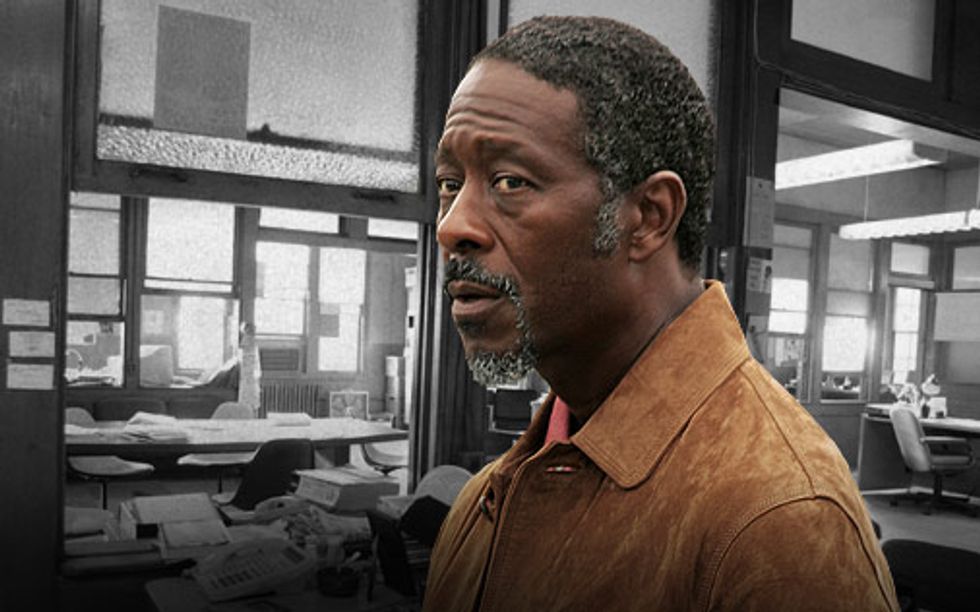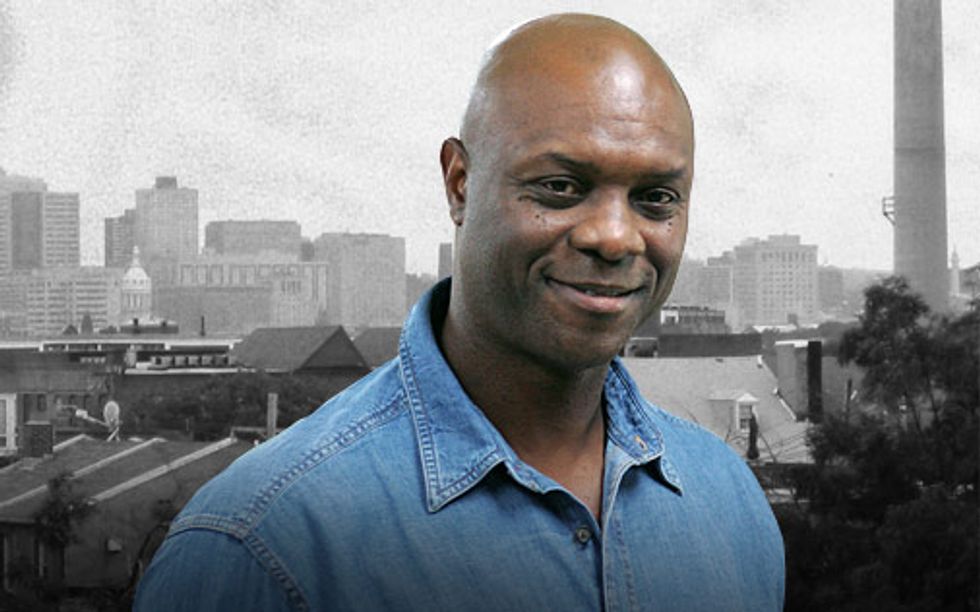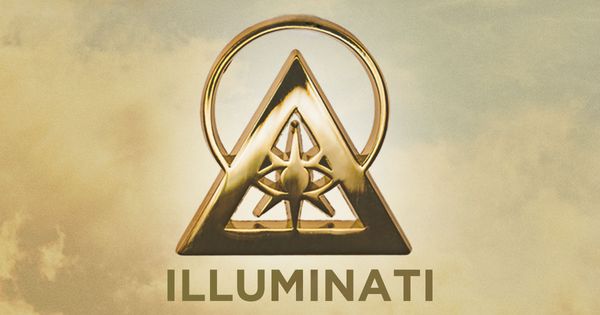Warning, spoilers ahead.
Anyone who's been around me in recent weeks or several days knows how passionate I have been about one TV show - only the best show in the history of television - "The Wire." A show detailing the effect of various institutions in Baltimore on the individuals under them is truly great for one reason - every character has redemptive qualities. Each person is, at the end of the day, likable.
Almost every character in the show has done horrible things. Some cops, like Herc and Prez, have committed obscene police brutality for low-level offenses. The "soldiers" in the drug organizations, like Wee-Bey, Chris, and Snoop. commit an incredible amount of murders.
But in a show like "The Wire", while one character may be more sympathetic than the next, there are no real heroes or villains. It depicts each person as a product of their environment and institution.
Although I'm not a TV critic or any expert on larger societal problems, I'm drawn more towards some than others. I'm also only halfway through Season 4 on the show, so this assessment is wholly incomplete, but here are my favorite, and in my opinion, the best characters in the show:
Omar Little
Would you ever imagine that a drug dealer robber would be the most honest person in the show? Who would have thought that Obama's favorite character would be a homosexual stick-up man? Although Omar lied in his testifying against "Bird" for the murder of a state's witness, Omar is true to himself and his "code."
Omar targets most of his actions against the people responsible at the top, such as Avon Barksdale and Stringer Bell. With his shotgun and accomplices, Omar is "The Wire's" Robin Hood as a man of legend in Baltimore's West Side. Despite his redeeming characteristics, he likely has murdered the most amount of people on the show besides "soldiers" like Wee-Bey, Snoop, Chris, and Slim Charles.
“I do some dirt, too. But I ain’t never put my gun on nobody that wasn’t in the game.”
Arguably the best scene in"The Wire" is Omar's testimony against Bird. Omar's wreckage of the slimy Barksdale lawyer, is the biggest "oh damn" moment of the show, something it would be better for me to leave to speak for itself.
Levy: You are amoral, are you not? You are feeding off the violence and the despair of the drug trade. You are stealing from those who themselves are stealing the lifeblood from our city. You are a parasite who leeches off...
Omar: Just like you, man.
Levy: ...the culture of drugs. Excuse me? What?
Omar: I got the shotgun, you got the briefcase. It's all in the game though, right?
Slim Charles
Slim, so far, is the only person in the show to emerge victorious against Omar. His competence and intelligence as a "soldier" parallels only that of Cutty, and it's frustrating that Barksdale never entrusted him with more power and unilateral decisions. With only himself and Cutty, the duo single-handedly defeated Marlo Stanfield, only to spare him with the rival dealer in Cutty's sights. However, the show would have been too boring if Marlo were to die that early.
Slim Charles is the ultimate friend you want to have your back - someone with unwavering and fierce loyalty to his peers. Even after Stringer dies and Avon is done, Slim stays close to Bodie and supplies him with Proposition Joe's product, even when there is no incentive for him to do so.
Unfortunately, through midway of season 4, I haven't seen too much of him.
Bunk
Bunk is the perfect foil to the strong character of McNulty throughout the first three seasons of the show. Although a heavy drinker and womanizer, he does not come off as strong of a character. Among the characters, he is subject to the most amount of bullshit, having to devote a heavy amount of unnecessary resources to finding a lost police gun.
Most would say we view the show through the lens of Bunk, and his reprimanding of Omar after his costly encounter at Slim's stash house is among the most sobering parts of the show.
Bunk: As rough as that neighborhood could be, we had us a community. Nobody, no victim, who didn't matter. And now all we got is bodies, and predatory motherfuckers like you. And out where that girl fell, I saw kids acting like Omar, calling you by name, glorifying your ass. Makes me sick, motherfucker, how far we done fell.
Prez
Prez has the arguably the best character development I've ever seen on television. In the beginning, he is the most unlikeable character of the show - the epitome of incompetence and police brutality when he nearly blinds a kid in the projects for "pissing him off." As the son-in-law of Major Stan Valchek, nepotism is the only reason for why he keeps has and keeps his job.
However, under the wing of Lester Freamon, Prez shows a cunning mastermind for wiretaps. As an analytical machine, Prez contributes to a substantial amount of big breakthroughs in the Barksdale, Sobotka, and Stanfield operations.
Unfortunately, Prez's career as a cop became truly tragic after he shoots another cop, Waggoner, while responding to shots fired. Outside the Major Crimes Unit, Prez is shown as the epitomizing racism in the Baltimore Police Unit, shooting Waggoner mostly because he was a black cop. It hurts us because we know Prez better, and we know that many cops in the same situation would have done the same thing.
In Season 4, however, Prez's evolution as a teacher is initially painful to watch as well. But he quickly develops a knack for connecting with his kids, especially Duquan, and getting his students engaged in math questions by teaching him through games of dice. It's clear to us that Prez has finally found his place, and it's frustrating when his bosses stress that he and the other teachers have to "teach to the tests."
Lester Freamon
Lester is the father of the show. With no ass-kissing and disrespect of the chain of command, in the first season, he is slowly shown as an incredibly competent investigator, making the first identification of Avon Barksdale and leading the charge on many of the wiretaps. For almost everyone else in the Major Crimes Unit, including McNulty, Greggs, Daniels, and Sydnor, Lester is the father figure and role model.
Despite his cunning, however, Lester is a catalyst for not only the professional development but also the personal development of the people under his command. By leading Daniels to follow his no-bullshit attitude, and Rhonda Pearlman to seek out subpoenas against corrupt politicians, Both see the promotions they deserve as well as resolution in their personal lives.
Probably the best decision in Season 4 was to tone down the main character of McNulty and allow the growth and development of other characters. With McNulty obsessing over catching Stringer Bell, Lester's wise words lead McNulty to seek true change and resolution.
Lester Freamon: Hey, hey, hey. A life. A life, Jimmy, you know what that is? It's the shit that happens while you're waiting for moments that never come.
Lester Freamon: The job will not save you, Jimmy.
Howard "Bunny" Colvin
As the founder of the idea of "Hamsterdam," legalized drug zones, Bunny sparks true change in policing in the Baltimore Police Department. Another father figure on the show, Bunny serves as the conscience of Season 3 with his sobering words on the perils of the War on Drugs. When Carcetti wants to see what Hamsterdam is like for himself and hear Bunny's side of the story, him showing Carcetti both the good and the bad the some of the most visceral parts of season 4. Obviously, once the idea was leaked to the higher-ups in the department and the press, the rest of Baltimore was not so sympathetic.
In addition, Bunny sparks real change in one of the least sympathetic characters in the show: Carver. We see both characters interacting more cordially with the kids on the corner, and once Bunny starts working on the Johns Hopkins research project, he is the first authority figure to get through to kids like Namond.
Again, "The Wire" is the best show I've ever seen on television, and a big part of this isn't just because of the plot's relation to larger societal problems, but instead the complexity and richness of each of the characters. At the end of the day, each person is sympathetic no matter who they are or what you think of their role in society, and that's something in today's day and age that's important for everyone to take away.


